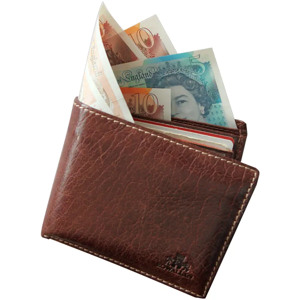Tavex uses cookies to ensure website functionality and improve your user experience. Collecting data from cookies helps us provide the best experience for you, keeps your account secure and allows us to personalise advert content. You can find out more in our cookie policy.
Please select what cookies you allow us to use
Cookies are small files of letters and digits downloaded and saved on your computer or another device (for instance, a mobile phone, a tablet) and saved in your browser while you visit a website. They can be used to track the pages you visit on the website, save the information you enter or remember your preferences such as language settings as long as you’re browsing the website.
| Cookie name | Cookie description | Cookie duration |
|---|---|---|
| tavex_cookie_consent | Stores cookie consent options selected | 60 weeks |
| tavex_customer | Tavex customer ID | 30 days |
| wp-wpml_current_language | Stores selected language | 1 day |
| AWSALB | AWS ALB sticky session cookie | 6 days |
| AWSALBCORS | AWS ALB sticky session cookie | 6 days |
| NO_CACHE | Used to disable page caching | 1 day |
| PHPSESSID | Identifier for PHP session | Session |
| latest_news | Helps to keep notifications relevant by storing the latest news shown | 29 days |
| latest_news_flash | Helps to keep notifications relevant by storing the latest news shown | 29 days |
| tavex_recently_viewed_products | List of recently viewed products | 1 day |
| tavex_compare_amount | Number of items in product comparison view | 1 day |
| Cookie name | Cookie description | Cookie duration |
|---|---|---|
| chart-widget-tab-*-*-* | Remembers last chart options (i.e currency, time period, etc) | 29 days |
| archive_layout | Stores selected product layout on category pages | 1 day |
| Cookie name | Cookie description | Cookie duration |
|---|---|---|
| cartstack.com-* | Used for tracking abandoned shopping carts | 1 year |
| _omappvp | Used by OptinMonster for determining new vs. returning visitors. Expires in 11 years | 11 years |
| _omappvs | Used by OptinMonster for determining when a new visitor becomes a returning visitor | Session |
| om* | Used by OptinMonster to track interactions with campaigns | Persistent |
| Cookie name | Cookie description | Cookie duration |
|---|---|---|
| _ga | Used to distinguish users | 2 years |
| _gid | Used to distinguish users | 24 hours |
| _ga_* | Used to persist session state | 2 years |
| _gac_* | Contains campaign related information | 90 days |
| _gat_gtag_* | Used to throttle request rate | 1 minute |
| _fbc | Facebook advertisement cookie | 2 years |
| _fbp | Facebook cookie for distinguishing unique users | 2 years |

Every four years athletes from around the world come together at the Olympic games to compete for a gold medal. This brings the question of wether the medals are made of pure gold.
It’s a question that many wonder about. This article will explore the history, composition, and value of Olympic medals and address the question: Are they truly made of gold?
History of Olympic Medals

Medals have been given out at the Olympics since the first modern Games in Athens in 1896. In the beginning, winners got silver medals and an olive branch, while runners-up got copper or bronze medals.
It wasn’t until the 1904 St. Louis Games that gold, silver, and bronze medals became regular awards in the modern olympic games.
Composition of Olympic Medals

So, what are gold medals from the Olympics made of? You might be shocked by the truth. Gold awards from the modern Olympics are not made of only gold.
In reality, they are mostly made of 92.5 silver with a tiny layer of pure gold on top
Medals have had different amounts of gold in them over the years, but since the 1912 Stockholm Games, all of them have had at least 6 grams of gold finishing on top of a sterling silver base.
Are Olympic Medals Pure Gold?

Gold medals from the Olympics are not made of pure gold. They are mostly silver, with a little gold finishing on top.
This mix of metals not only makes the awards cheaper, but it also makes sure they will last, since pure gold is fragile and easily broken. The last Olympics to use solid gold awards were in Stockholm in 1912.
Why Aren’t They Solid Gold?
The main reasons for stopping the production of solid gold medals were functional and financial ones. This is because making pure gold medals would be too expensive, especially since there are so many events and the number of players keeps going up. Not only that, but solid gold is a soft metal, so the awards can get dents and scratches.
The Value of an Olympic Gold Medal

When it comes to value, Olympic medals have two components: intrinsic and sentimental.
The intrinsic value is based on the market prices of the metals used, primarily silver, and the thin gold plating
However, the real worth of an Olympic medal lies in its symbolic value. It’s a testament to an olympic athlete’s hard work, dedication, and achievement on one of the world’s biggest stages.
How Are Olympic Medals Made?

The process of making Olympic medals is intricate and varies with each edition of the Games. Generally, the host country is responsible for designing and producing the medals. The process involves several steps, including designing, casting, polishing, and engraving. The design often features elements that represent the host country’s culture and history.
For example, Paris Olympic medals, in the summer of 2024, feature ironwork from the Eiffel Tower. This marks the first time a host city has included portions of a national monument.
Interesting Facts About Olympic Medals
Olympic medals have had a wide range of designs and compositions throughout history.
For example, the Tokyo 2020 summer Olympic games medals are created from recycled electrical equipment, demonstrating a dedication to sustainability.
Some athletes, like as Michael Phelps, have won so many medals that they need unique storage alternatives!
Medal Winners and Their Rewards

Besides the medals themselves, players often get a lot of money from their countries when they win medals. Some of these incentives are cash awards, sponsorship deals, and in some countries, pensions for life.
The benefits are very different from one country to the next
Controversies and Scandals
The Olympic history is not without controversy. Medals have been removed in some cases owing to drug revelations, and discussions about the fairness of judging in subjective sports continue. Furthermore, issues like the quality of medal manufacture have periodically come under criticism.
The Future of Olympic Medals
As people become more ecologically concerned, the future of Olympic medals may change towards more sustainable techniques. The utilisation of recycled materials in recent medals may become the norm. Changes in design and material kinds may also occur to reflect technological improvements and societal ideals.
Conclusion
Olympic medals may not be pure gold, but they are enormously precious to the athletes who win them. These medals are symbols of peak athletic accomplishment as well as treasured souvenirs of years of hard work and dedication. Silver and gold combine, both physically and symbolically, to create a one-of-a-kind and valued reward.

















